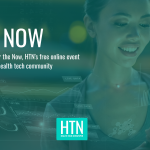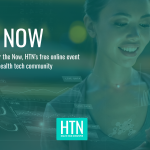
Frimley Health and Care Integrated Care System has enrolled over 8,000 patients onto their remote monitoring programme and their initial analysis suggests benefits for patients and the wider health and care system. Strategia have completed an independent actuarial report which corroborates key findings and provides further advice to support the strategic development of their remote monitoring programme.
Local analysis of early outcome data for the first 3,673 patients enrolled is showing benefits including a 38.6% reduction in A&E attendances, 53.7% reduction in admissions and a 26.7% reduction in outpatient appointments.
The reporting also shows a 19.4% reduction in GP contacts, a 36.1% reduction in 999 calls, a 36.9% reduction in 111 calls and 7.6% reduction in the volume of prescriptions issued for remotely monitored patients. A parallel programme, which enrolled over 1,000 patients in care homes had similar results.
Strategia has reviewed the methodology and comparable literature from other studies and concluded that the direct savings from the first three of these measures concerning hospital attendance will be in the region of £5m-£8m annually.
These savings were for admissions, A&E attendances and outpatient appointments only and did not count wider savings such as the avoidance of expensive treatments and procedures.
Frimley Health and Care worked with Graphnet to develop locally owned population health management tools. These tools combined with Johns Hopkins risk stratification algorithms enabled residents in the highest Patient Need Groups (PNGs) to be offered remote monitoring and a roll out to these patients began in December 2022.
Patients living with long term medical conditions and frailty were proactively offered remote monitoring to help them stay well and receive care if they became ill. The outcome for these patients was then compared to outcomes for patients not yet on the remote monitoring programme but with similar risk and demographic profiles.
The remote monitoring programme is designed to enable early identification and management of deterioration especially for patients with multiple long term medical conditions.
As an example, early detection of atrial fibrillation can reduce the incidence of strokes by 20%. The Stroke Foundation states that, in addition to the severe impact on patients and their families, strokes are estimated to cost the NHS approximately £3 billion annually. Furthermore, they contribute an additional £4 billion in economic losses due to reduced productivity, disability, and informal care.
The Frimley Health and Care Remote Monitoring Service enables health readings, such as a resident’s symptoms and blood pressure, to be shared with their Digital Health Team. This team of healthcare professionals can spot any changes and offer clinical advice and further support to enable early intervention. The team operates under medical supervision and includes one nurse for every 2,500 patients, along with one care navigator and one care coordinator for every 900 patients. They also provide an out of hours service for 24/7 support.
Patients are issued equipment such as blood pressure monitors, pulse oximeters, thermometers and supported to upload updates on their condition. This information is usually shared either daily or weekly according to the patient’s needs so the team is alerted to deterioration or other issues. Working closely with colleagues across health and social care, this service also enables GP practices to intervene earlier to manage deterioration of their patients locally when needed.
Feedback from local residents has been very encouraging with patients, families and carers reporting improved quality of life, an increased sense of being looked after, much better insights into their health and more independent living. Interestingly patient needs scores for patients enrolled on the programme have dropped by a quarter in less than 12 months.
Sharon Boundy, NHS Frimley Transformation Director, said:
“Our secure technology, including shared care records and population health management tools, allow healthcare professionals access to the most accurate and up-to date information and analysis. “We are pleased to share our findings to support this emerging proactive care and remote monitoring model. This allows us to move from a model of care that is reactive and unscheduled towards more proactive and scheduled care.”
Sam Burrows, NHS Frimley Chief Transformation, Delivery & Digital Officer, said:
“Our remote monitoring programme enables us to provide patients with timely advice and care when they need it and our residents and professionals report feeling more reassured and satisfied as a result. “It is great to see emerging methodology around calculating the savings at a system-wide level and we are keen to spread the learnings and maximise its potential use across the NHS. “Our workforce is under immense pressure, but early intervention means we are helping more patients to stay well and reducing unscheduled care.”
Lalitha Iyer, NHS Frimley Chief Medical Officer, said:
“We have taken learning from the Covid-19 pandemic about how powerful it is to be able to use our population health capability combined with clinical expertise to identify where patients can benefit from proactive support. “Having the capability to support thousands of patients especially those with greatest need and understanding the benefits from this intervention with evidence is amazing to see.”
Markus Bolton, Director, Graphnet Health, said:
“The results of Frimley Health and Care’s population health driven approach are very encouraging – and it’s also great to see them sharing their integrated approach to system transformation with other ICSs across England. “We are excited about the potential benefits of scale. Graphnet’s digital tools already cover 20 million residents across England and the Strategia report has only just started to scratch the surface of quantifying the benefits.”
The Strategia report, authored by Adrian King, Dr David Lawrence (Medical Advisor) and Gozde Yildrim and advised by an Imperial College team made up of Dr Melody Ni (Senior Research Fellow NIHR), Dr Rasario Luxario (Medical Advisor) and Professor James Barlow both reviewed the Frimley Health and Care study and performed a literature review of comparable studies from the UK and Scandinavia to corroborate the direction of travel.
Using different weightings for the Frimley and third party reviews, they established a range of cost avoidance savings of between £5m and £8m pa savings for the Frimley Health and Care Integrated Care System. Frimley Health and Care is part of the CIPHA programme (Combined Intelligence for Population Health Action), which allows 11 ICSs using similar population health technology and data stores to share experience and development. A number of ICSs including Cheshire and Merseyside and Kent are adopting the Frimley approach, with Cheshire and Merseyside already enrolling hundreds of patients a month.





